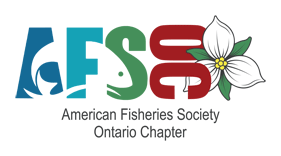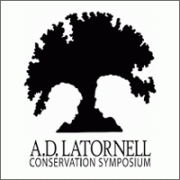Jack Imhof Wins Conservation Pioneer Award at 19th Annual A.D. Latornell Symposium
Jack Imhof received a Conservation Pioneer Award at the 19th Annual A.D. Latornell Symposium recognizing his 25 years with the Ontario Ministry of Natural Resources (MNR), decade with Trout Unlimited Canada (TUC) as well as other academic and volunteer pursuits, including as President of the Ontario Chapter of the American Fisheries Society (AFS-OC) which included being part of the organizing committee for the 2008 AFS Annual Meeting that drew over 1,200 fisheries professionals.
Since the late 1970’s, the name Jack (Jacob) Imhof has been synonymous with freshwater ecosystems. Initially he furthered our knowledge of benthic invertebrates and fish communities in flowing streams. Later, Jack made the term ‘fluvial geomorphology’ a household word – introducing the aquatic community to Dave Rosgen and Bob Newbury, the gurus of natural channel design.
Jack changed the way we think about rivers in this province and no doubt across Canada. He taught us to think about the relationships between land and water and what that meant for our aquatic species. He shifted the practice from straightening and hardening channels to naturalizing channels. He translated science into everyday language for laymen, the angling community and scientists alike.
He has been involved with developing rehabilitation techniques and science for the rehabilitation of aquatic ecosystems, developed policies, guidelines and standards for the provincial Aquatic Habitat Rehabilitation program, developed and implemented Watershed Based Fisheries Management Planning Guidelines, and is an advocate for the Integrated Watershed Management Planning process. Jack spearheaded the natural channels initiative on behalf of the Ministry of Natural Resources which developed the science, definitions, procedures and policies for the protection and restoration of stream systems.
When he retired from MNR in 2010 he returned to TUC to continue his work on managing and delivering their National Conservation Agenda, science and policy development and management of TUC’s scientific staff.
But Jack is not just defined by his exceptional work with MNR and TUC. He was an Adjunct Professor with the University of Waterloo in the Biology departments between 2003 and 2009 and remains an Adjunct Professor with the University of Guelph in the Department of Integrative Biology and Faculty of Environmental Management and Design, School of Environmental Design and Rural Development (1997 – present). Here he teaches and inspires the next generation of aquatic ecologists and fluvial specialists.
There is no one more passionate about their chosen field than Jack, and no one more deserving of this award as recognition for the many young professionals he has encouraged and science, policy and practice contributions he has made to the field of Aquatic Ecology over the last 30 plus years.



